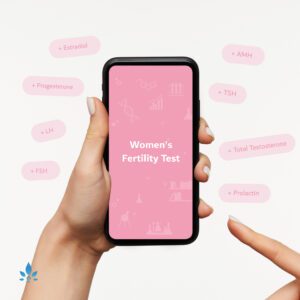Causes of Female Infertility – an Overview


The World Health Organisation defines infertility as an inability to fall pregnant despite actively trying for at least 12 months. For those who want a baby, it can be a devastating condition, and is thought to affect somewhere between 9-18% of couples. The process of both getting pregnant and staying pregnant is not easy and complications can arise at any stage.
An inability to conceive is something that a couple need to face together and it is important that both parties undergo preliminary investigations. Contrary to what many believe, infertility is not solely a women’s problem, and upon investigation, only 30-40% of suspected infertility cases will be due to female-specific issues. An approximately equal number of cases will be due to male infertility and the remainder will be idiopathic, meaning that the causative factor is not clear.
Nabta has produced a set of articles that aim to explore the causes of infertility in more detail. Female infertility is not a simple topic; there are many reasons why a female may struggle to conceive. The linked articles will discuss some of the most common causes of female infertility, exploring whether they present a structural, hormonal or physiological barrier to conception and pregnancy.
- Failure to Ovulate
- Structural Problems
- Infections
- Autoimmune and Immune-Mediated Disorders
- Environmental/lifestyle factors
- Cancer
Infertility is a major issue and is often caused by the complex interplay between various risk factors. Finding a simple explanation for why a female is struggling to conceive is not always possible. There is growing evidence to suggest that infertility is associated with other health issues and co-morbidities; for example, women who struggle to conceive are thought to be at greater risk of developing gynaecological cancers as well as mental health issues. This highlights the need for accurate and early diagnosis to identify those women who are at high risk, so that an appropriate and personalised long-term care plan can be implemented.
Nabta is reshaping women’s healthcare. We support women with their personal health journeys, from everyday wellbeing to the uniquely female experiences of fertility, pregnancy, and menopause.
Get in touch if you have any questions about this article or any aspect of women’s health. We’re here for you.
Sources:
- Hanson, B, et al. “Female Infertility, Infertility-Associated Diagnoses, and Comorbidities: a Review.” Journal of Assisted Reproduction and Genetics, vol. 34, no. 2, Feb. 2017, pp. 167–177., doi:10.1007/s10815-016-0836-8.
- “Infertility Definitions and Terminology.” World Health Organization, World Health Organization, 21 Oct. 2016, www.who.int/reproductivehealth/topics/infertility/definitions/en/.
- “What Are Some Possible Causes of Female Infertility? .” National Institutes of Health, www.nichd.nih.gov/health/topics/infertility/conditioninfo/causes/causes-female.












































